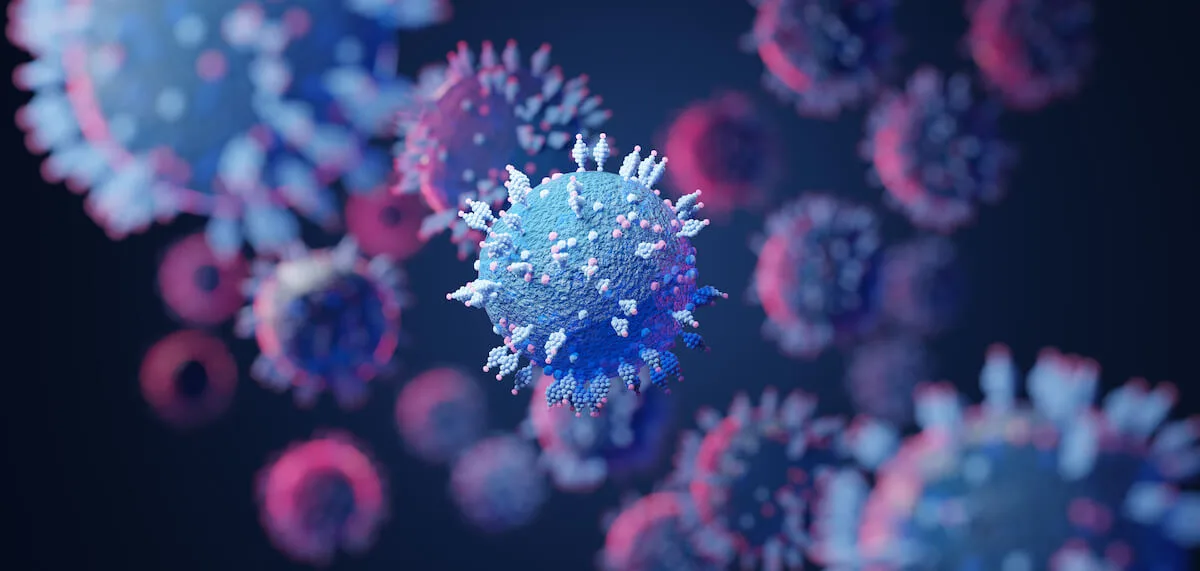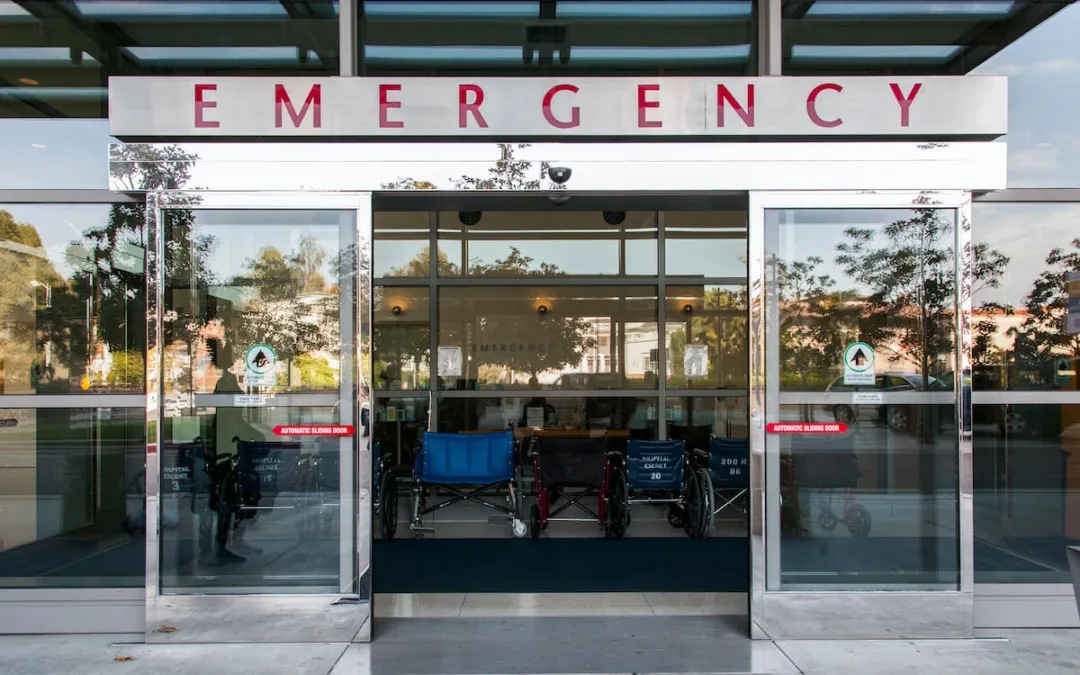
#image_title
#image_title
The new ‘variant of concern’ has been detected in the Badger State. Vaccines still offer the best protection.
The Omicron variant of COVID-19 has arrived in Wisconsin, with the Department of Health Services (DHS) confirming the state’s first known case on Saturday.
The variant was first detected in South Africa last month and had been discovered in at least 17 US states, including Wisconsin, as of Monday morning. Here’s what we know so far:
Is Omicron Cause for Concern?
In a Nov. 29 address, President Joe Biden said Omicron is “a cause for concern, not a cause for panic.”
US and world health officials have designated Omicron a “variant of concern.” It is spreading faster than Delta in South Africa.
The effects of Omicron’s mutations are not yet entirely clear, but preliminary research suggests it could be more contagious than the Delta variant, and that it could even be partially resistant to immunity gained through previous infection or vaccinations.
The upside is that early evidence suggests Omicron infection is less severe than Delta, but health officials warn against making conclusions based on early evidence.
Gov. Tony Evers said in a statement that his administration “will continue trusting the science to help keep Wisconsinites and our communities healthy and safe.”
“Now is the time to double down on our efforts to stop the spread of COVID-19, including the Omicron variant,” Evers said. “I urge all eligible Wisconsinites to get vaccinated and receive a booster dose as soon as possible and to follow the latest public health guidance.”
What’s the Best Protection Against Omicron?
As health officials learn more about Omicron, their advice remains the same: Get COVID-19 vaccinations and boosters, wear facemasks in public, and practice social distancing and other precautions intended to slow virus spread.
“What remains to be seen is how transmissible it is, how severe it is, and what effect the vaccine has on it,” said Dr. Ben Weston, chief health policy adviser for Milwaukee County. “But I think, nonetheless, the vaccine is the best mode of preparation that we have for something like this.”
Dr. Anthony Fauci, the nation’s top infectious disease expert, said Friday that we have “every reason to believe” being fully vaccinated and getting a booster shot will offer “at least some degree of protection” against Omicron.
RELATED: Hospitals Are in ‘Emergency Situation’ as Unvaccinated COVID Patients Fill Up ICU Beds
“I think it’s fairly straightforward: That is, really, get yourself protected with the vaccine—whether it’s your first dose of vaccine, whether it’s your booster—get protected,” Weston said.
In Wisconsin, 56.2% of residents have received both doses of their COVID-19 vaccine, a figure boosted by more than 87,000 children ages 5-11 having been vaccinated since they became eligible in October. Some parents remain cautious about vaccinating their children despite no cases of myocarditis and reported side effects no worse than what has been seen by adults.
With previous variants, unvaccinated individuals have been 11 times more likely to be hospitalized and 15 times more likely to die due to COVID-19 than those who have received a vaccine, according to DHS data.
Where in Wisconsin is Omicron?
The first Omicron case in Wisconsin was found in a Milwaukee County man who recently returned from South Africa, according to DHS. The man was fully vaccinated and had received a booster shot, according to DHS.
The department is also tracking a second, unrelated outbreak of Omicron among five California residents who attended a Nov. 27 wedding in Milwaukee (so far, no Wisconsinite has been identified as having contracted Omicron at the wedding). The affected individuals were all vaccinated and have mild symptoms, according to DHS.
What’s Our COVID Situation Like?
Hospitals in Wisconsin are overwhelmed and deaths are climbing due to a Delta-fueled surge of COVID-19 patients.
Because of this, it is important that people take the Omicron variant seriously and practice protective measures, said Karen Timberlake, DHS secretary-designee. She urges people who have not received the COVID-19 vaccination to do so, and for those who have been vaccinated to get their booster shot to prevent further outbreaks.
“We have the tools in our toolbox that can help slow the spread,” Timberlake said during a press conference Thursday to discuss the Omicron variant and hospital overcrowding because of COVID-19. “We need to buckle down and commit to taking these steps.”
Among Wisconsin’s 72 counties, COVID-19 infection levels are designated as critically high in 26 of them, and very high in the remaining 46 counties. Health officials said more than 90% of patients hospitalized because of COVID-19 are not vaccinated against the virus.
Barron County, in northwest Wisconsin, has about 207 cases of COVID-19 per 100,000 residents, second only to Menomonee County, at just over 217, among state counties. County Health Officer Laura Sauve said regional hospitals are overwhelmed by the caseload and she repeatedly has urged residents to get vaccinated against the virus.
To the south, in Eau Claire County, new COVID-19 cases are surging as well. With the emergence of the Omicron variant in Wisconsin, getting vaccinated against COVID-19 is especially important, county Health Department Public Information Officer Audrey Boerner said.
“Vaccinated individuals are 11 times less likely to be hospitalized if they get sick with Covid-19, and the best protection against any variant of COVID-19 is to get fully vaccinated and get a booster shot,” she said.
Health officials report increased demand for COVID-19 vaccinations in recent weeks as a virus surge prompted by Delta variant infections continues. More vaccinations are needed, they said, as the virus remains extremely active across the state.
What Makes Omicron Unique?
There have been multiple COVID-19 variants, most of which posed no real issue or greater threat than the original strain.
That changed when Delta came around and became the dominant strain of the virus. It has 13 mutations.
Omicron, on the other hand, has more than 30 mutations on the spike protein alone, according to Weston. The spike protein is the part of the virus that attaches itself to human cells. While there are many mutations in the Omicron variant, that doesn’t necessarily make it a worse version of the virus.
“That’s way more than we’ve ever seen in a circulating variant before,” Weston said. “But what we won’t know is what those mutations will mean.”
Politics

New Biden rule protects privacy of women seeking abortions
Under the new rules, state officials and law enforcement cannot obtain medical records related to lawful reproductive health care with the goal of...

Biden marks Earth Day by announcing $7 billion in solar grants
The Biden administration on Monday announced the recipients of its Solar For All Program, a $7 billion climate program that aims to lower energy...
Local News

Stop and smell these native Wisconsin flowers this Earth Day
Spring has sprung — and here in Wisconsin, the signs are everywhere! From warmer weather and longer days to birds returning to your backyard trees....

Your guide to the 2024 Blue Ox Music Festival in Eau Claire
Eau Claire and art go hand in hand. The city is home to a multitude of sculptures, murals, and music events — including several annual showcases,...



